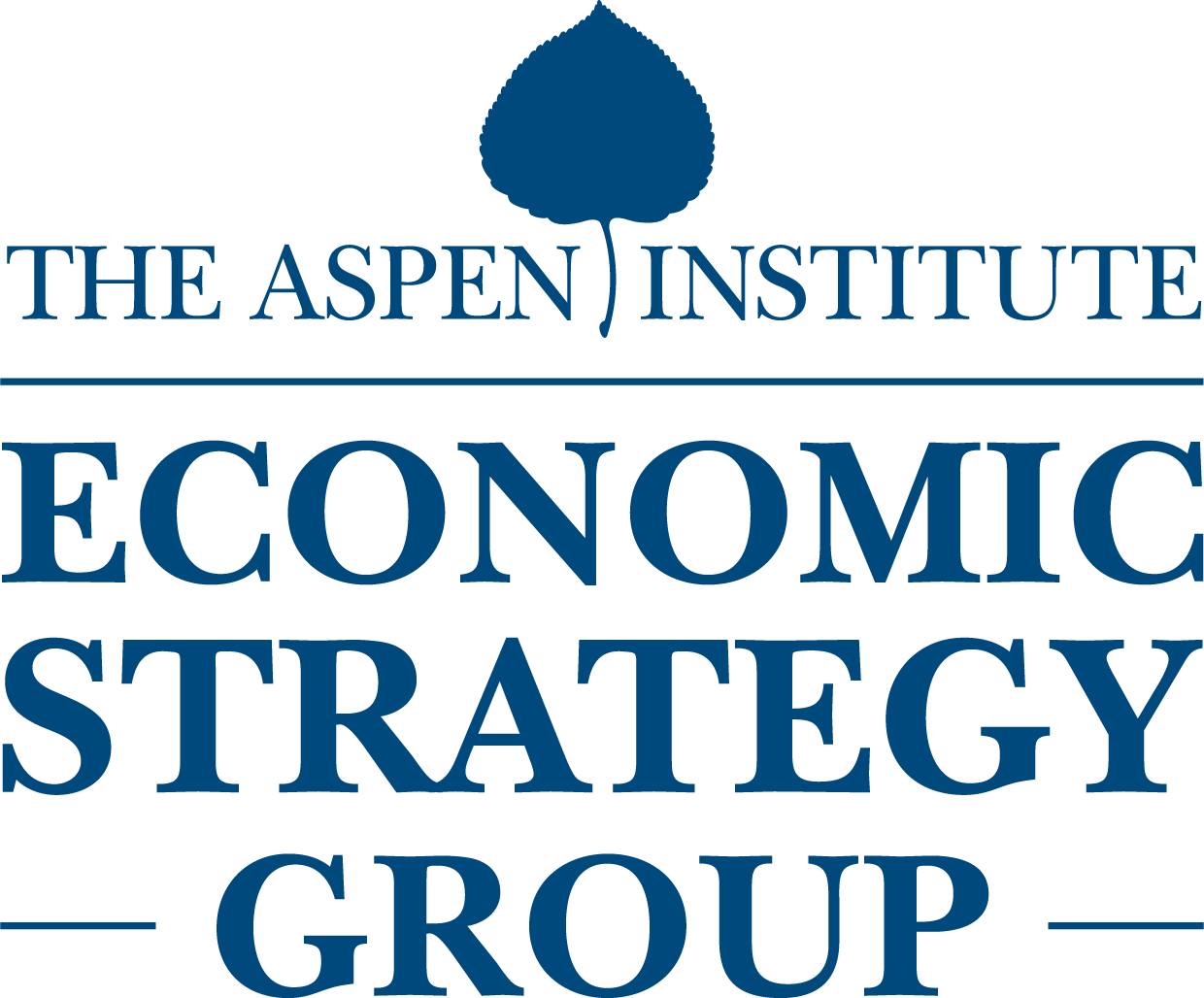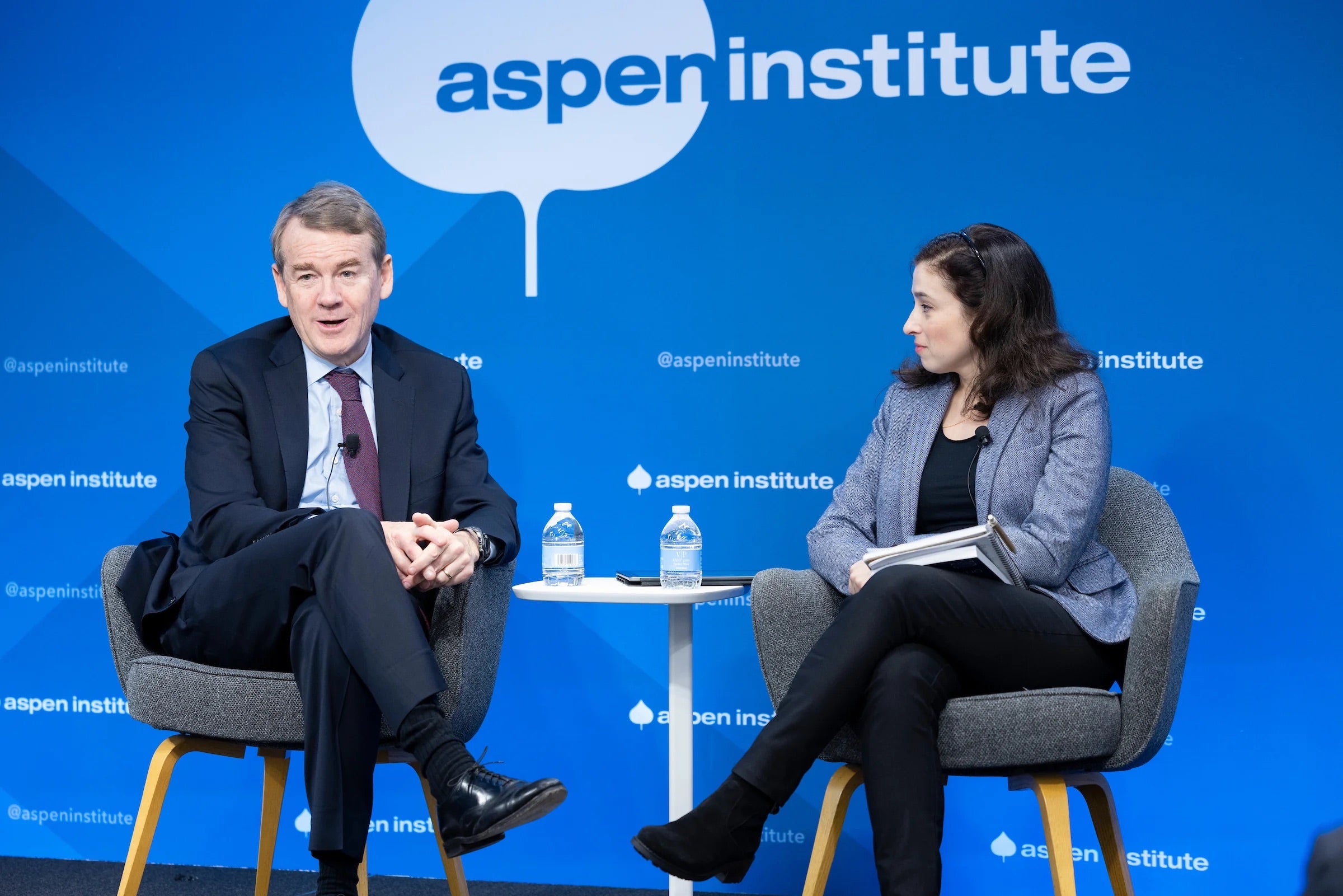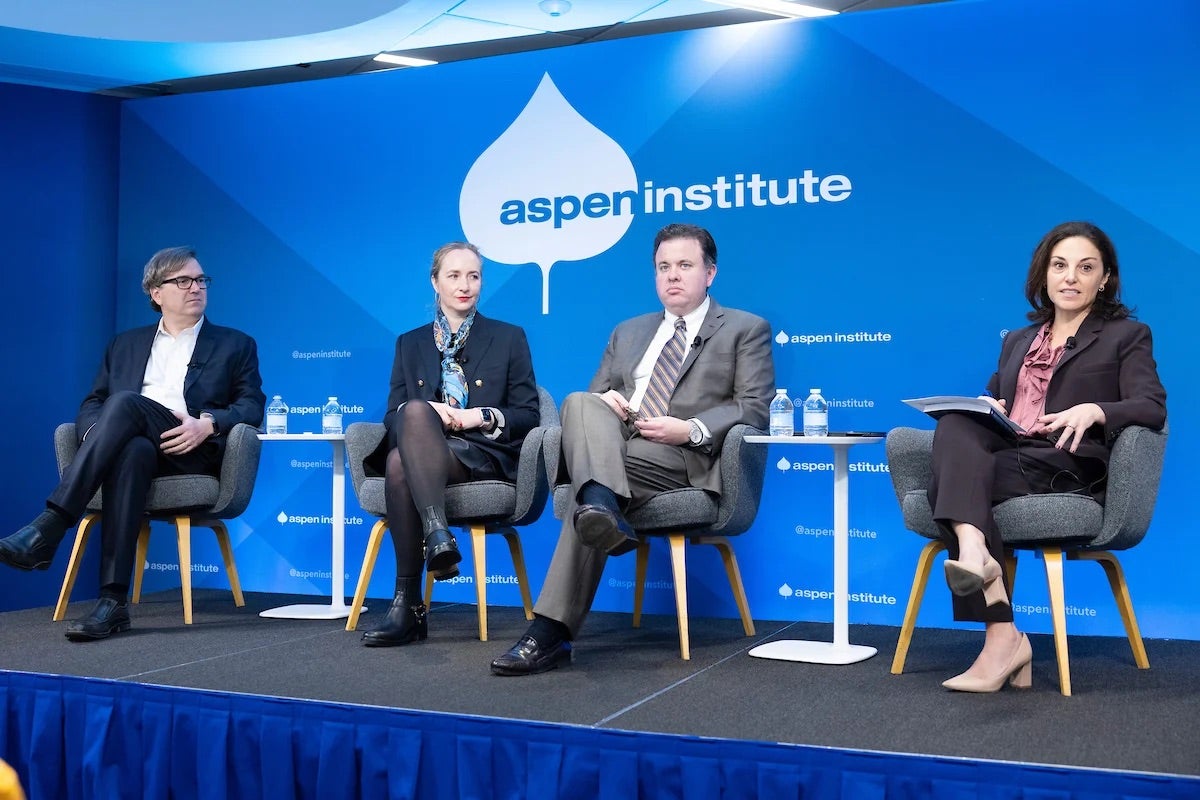
Book Launch Recap: Strengthening America’s Economic Dynamism

This week the AESG published our seventh annual policy volume, Strengthening America’s Economic Dynamism. This year’s volume features six papers covering topics including US trade and industrial policy, America’s fiscal and state capacity, the impact of advances in artificial intelligence on the labor market, and evidence-based strategies to make communities safer. These papers also provided the basis for a number of essays and opinion pieces published by AESG authors throughout the fall.
On Tuesday the AESG hosted an event for the launch of the policy volume that featured discussions with economists and policymakers about some of the most pressing topics in US economic policy.

Session I of our book launch event featured Colorado Senator Michael Bennet in conversation with Washington Post opinion columnist Catherine Rampell about economic policy challenges facing the new Congress. Their discussion touched on Americans’ desire for a new economic paradigm, policies to help combat inequality, the future of US tax policy, and the country’s rising deficit.
“If you look at most of the polling over the last two years, when people were asked about the economy, what you would hear is that 70 percent of people say they want a radical transformation of the economy,” said Senator Bennet.
When discussing his priorities for the next Congress, the Senator underscored the need to address the nation’s fiscal situation in a bipartisan way. “We have to start addressing this deficit. We’re at a point where our interest expense means we’re paying more to service our debt this year than we are to fund the military in the United States,” he said. “We’re never going to be able to address this deficit unless we do it in a bipartisan way. Maybe this will be a moment for us to do it. I think people are beginning to feel that we are reaching an outer edge that is worrisome.”

Session II was a panel discussion about post-election economic policies, featuring Jason Furman, Aetna Professor of the Practice of Economic Policy at Harvard University, Michael R. Strain, Director of Economic Policy Studies at the American Enterprise Institute, and Allison Schrager, Senior Fellow at the Manhattan Institute, moderated by AESG Director Melissa S. Kearney. The panel focused on what the incoming Congress and presidential administration should do to advance economic growth, innovation, and widespread economic security and prosperity.
On the country’s rising debt, Furman remarked, “It is not at all reasonable to expect that we’re going to grow our way out of this problem, which means we’re going to need to do something. I think that starts with the easiest steps which is either not extending the tax cuts or paying for their extension.”
On trade, Strain argued, “Even if you share the President’s goals, the evidence shows that putting tariffs on imports, which invites retaliation from other nations, leads to declining manufacturing employment and higher costs for domestic manufacturers and doesn’t succeed in weakening economic ties.”
On the public’s growing discontent with the existing economic paradigm, Schrager noted, “We are in a state of economic transition. If you look at economic history and you look at the move from agriculture to industrialization, that also took a long time and made people very unhappy. But I think we can all agree it improved everyone’s lifestyle a lot. Trying to turn back the past is not the solution, but I think we can do more to help people rise and adapt.”
Watch a recording of the event here.
Photos by Allison Shelley.